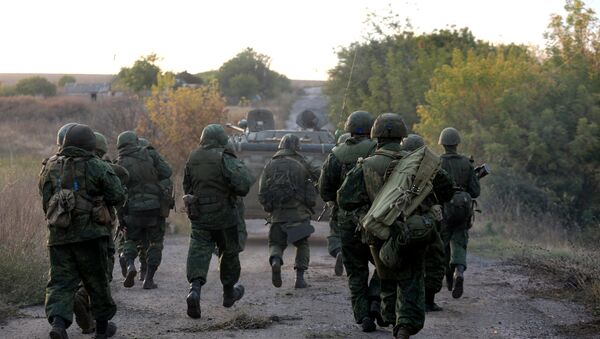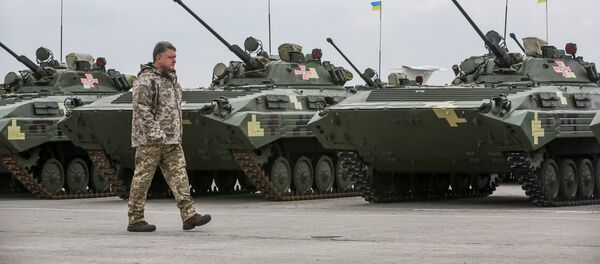"Of course, Russia has influence on representatives of Donbas, but this influence is not limitless," Peskov told reporters when asked whether Moscow would react to the words of the head of the self-proclaimed Donetsk People’s Republic (DPR) that a recent killing of a militia commander constituted a declaration of war.
Peskov added that the current situation in Ukraine had left much to be desired as continued military provocations derail peace efforts.
"It is true that the security situation on the line of demarcation [in Donbas] is poor, provocations continue. Such emotional reaction of Donbas representatives can be explained, and, of course, this situation is not favorable to the process of the Minsk agreements implementation," he pointed out.
In April 2014, Kiev authorities launched a military operation against pro-independence militia in the eastern Ukrainian Donbas region. In February 2015, the two sides reached a ceasefire deal after talks brokered by the leaders of Russia, France, Germany and Ukraine — the so-called Normandy Format — in the Belarusian capital of Minsk.
The deal stipulates a full ceasefire, weapons withdrawal from the line of contact in eastern Ukraine, an all-for-all prisoner exchange and constitutional reforms, which would give a special status to the self-proclaimed Donetsk and Luhansk people’s republics. Both sides of the conflict, however, are constantly accusing each other of violations of the agreement.




